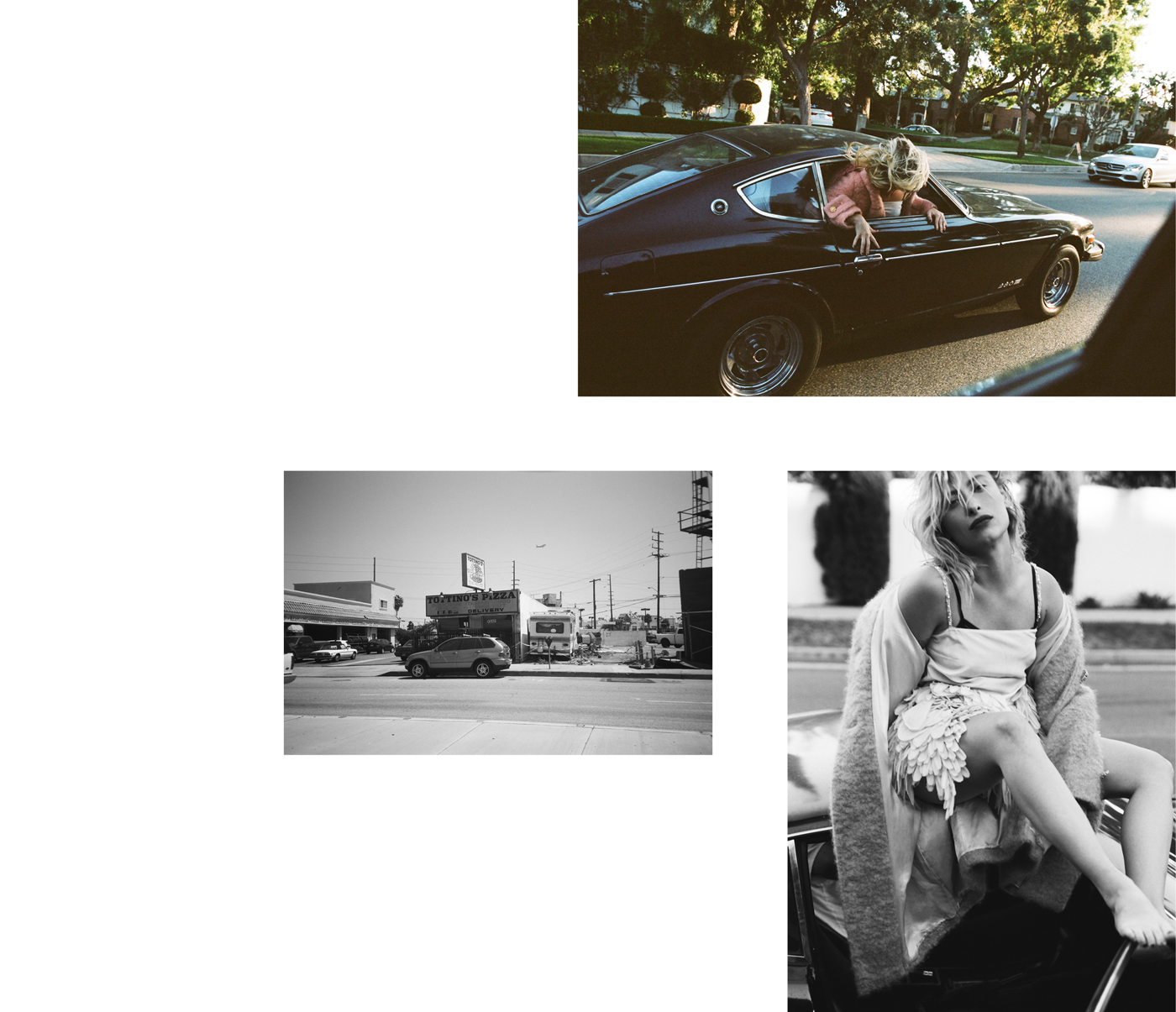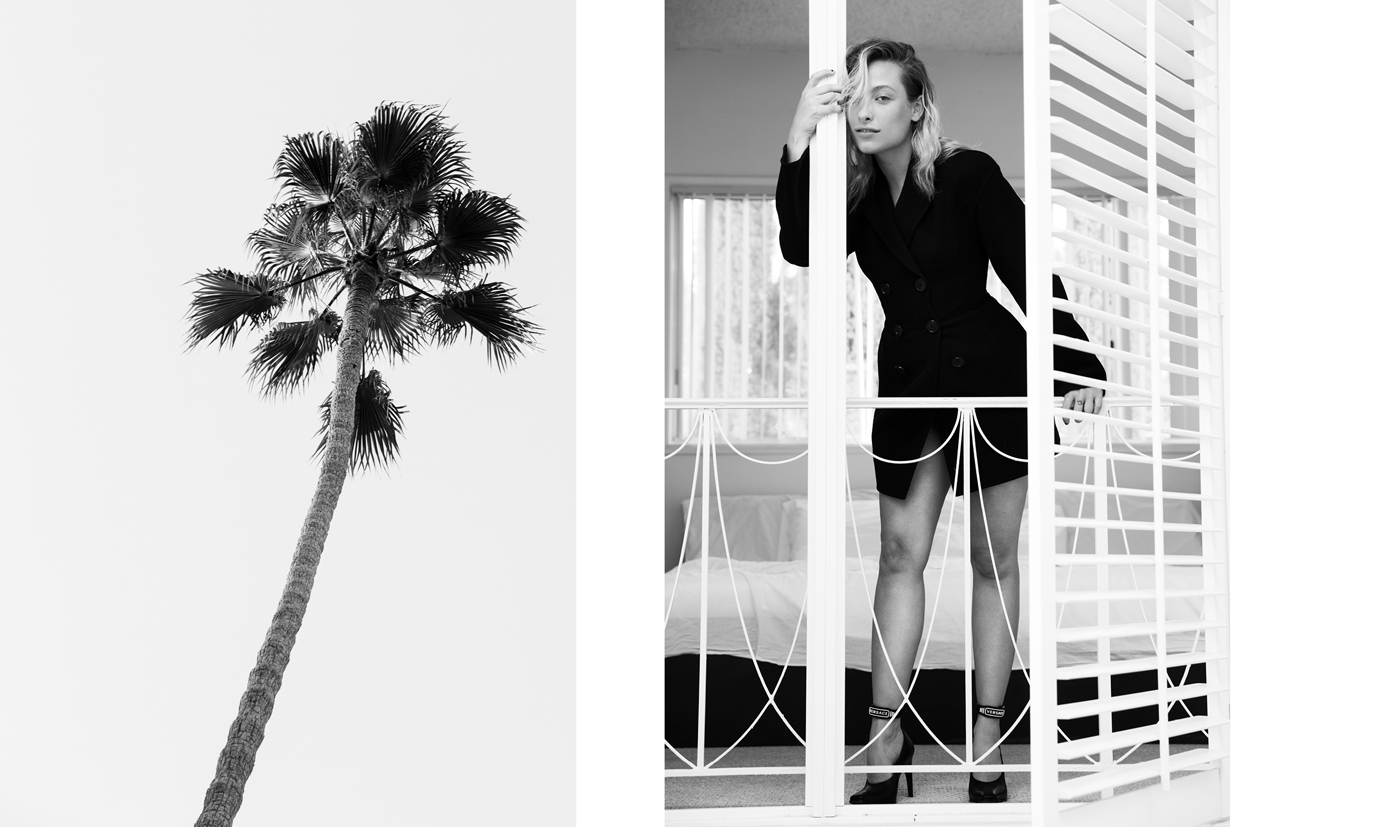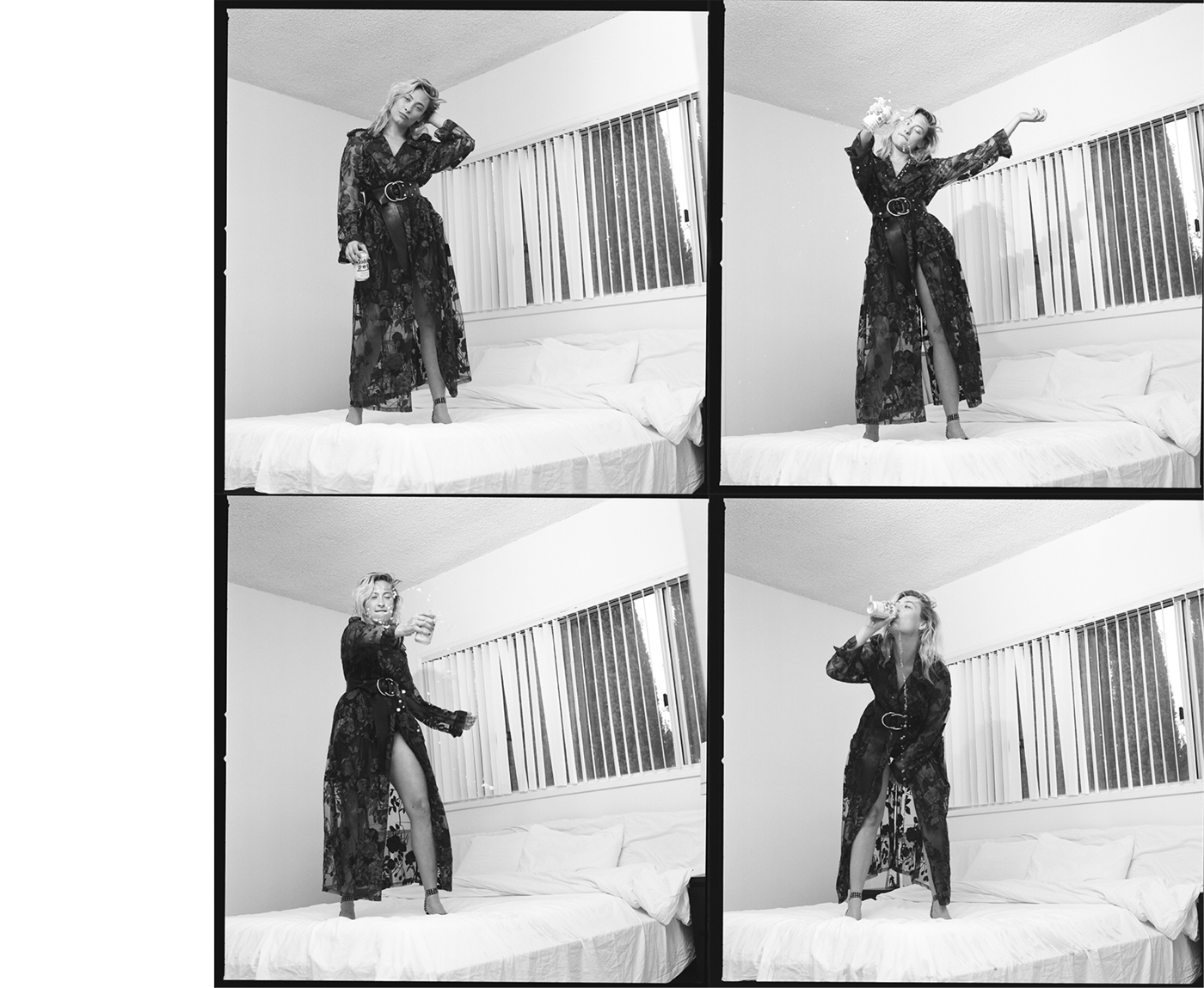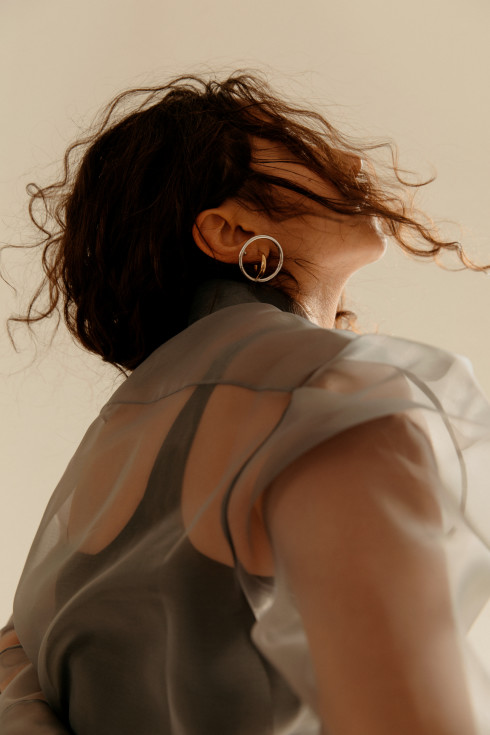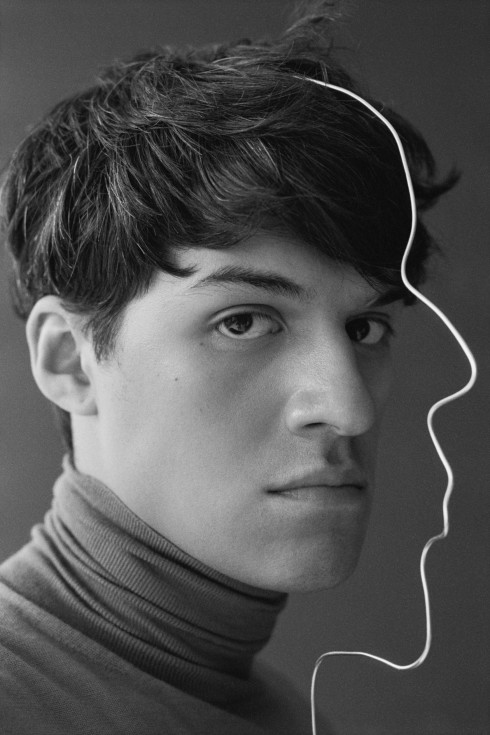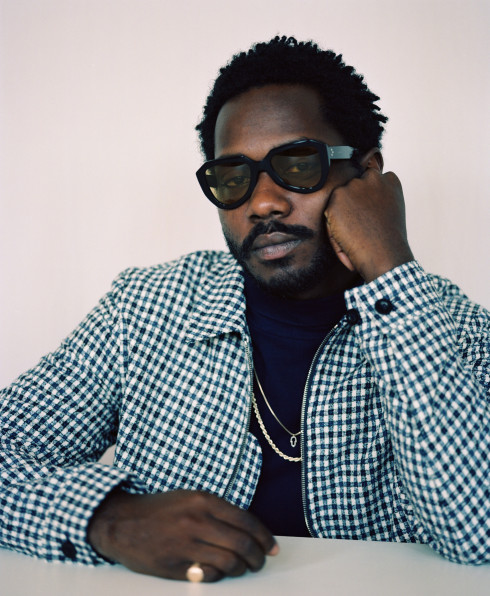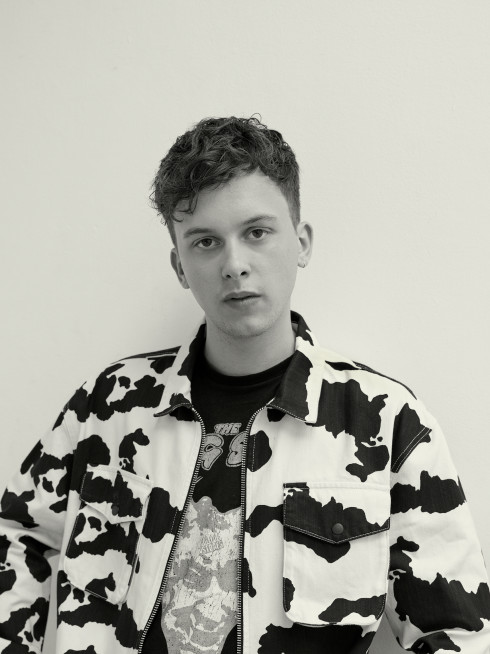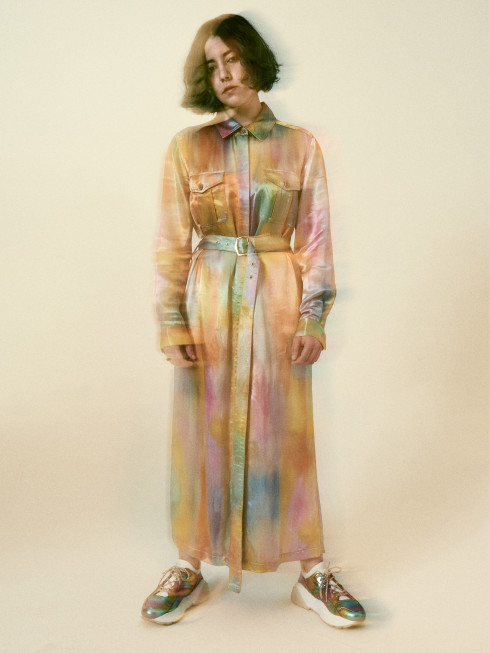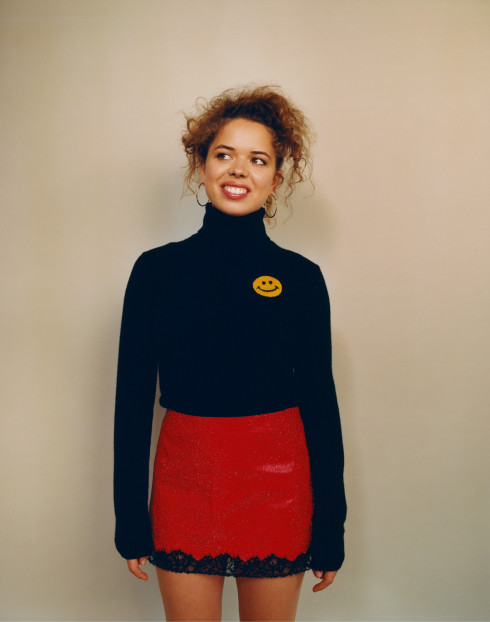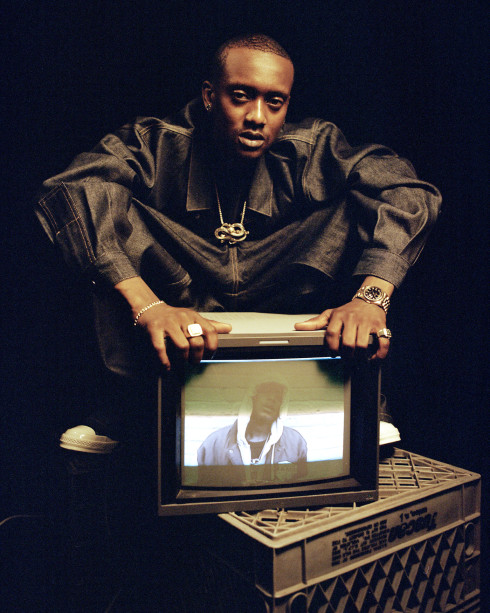
Coat and dress by Miu Miu. Bodysuit by Calvin Klein.
- By
- Annette Lin
- Photography by
- Max Papendieck
Styling by Sean Knight. Hair by Whitney Schield at Atelier Management. Makeup by Homa Safar using NARS Cosmetics. Photographer’s assistants: Colin Smith and Grant Mellon. Production by Paul Preiss and Mark Hobson at Preiss Creative.
SAMANTHA URBANI
Talking to Samantha Urbani, you might prefer to refer to her as a ‘slashie.’ It’s probably the most accurate way to describe her and what she does; the other option is to use a list including, but not limited to: singer/songwriter/producer/director/visual artist/sculptor and more.
If it seems like a lot, that’s because Urbani is not a minimalist. If anything, her latest EP, Politics of Power, released last month, puts her firmly in the maximalist camp, thanks to its lush Eighties sound. At first listen, each song may sound pop on the surface, but listening to the tracks further reveals them to be complex, multilayered, and dense, both musically and lyrically.
When I catch up via phone with Urbani, who’s in Los Angeles, it’s release day. Surprisingly, she’s fairly calm. “I did celebratory release parties for the first two songs on the album, and so now I’m just chill. I haven’t gotten to listen to it on vinyl yet so I’m just planning on listening to that today.” She’s taking the call from her car. “I’ve always loved driving and being inside my car. It’s my meditation and my escape.” She drives a black 2003 Land Rover Discovery, “kind of like the Jeeps on Jurassic Park. I love it, even though it’s bad on gas, and it makes me feel bad about the environment.”
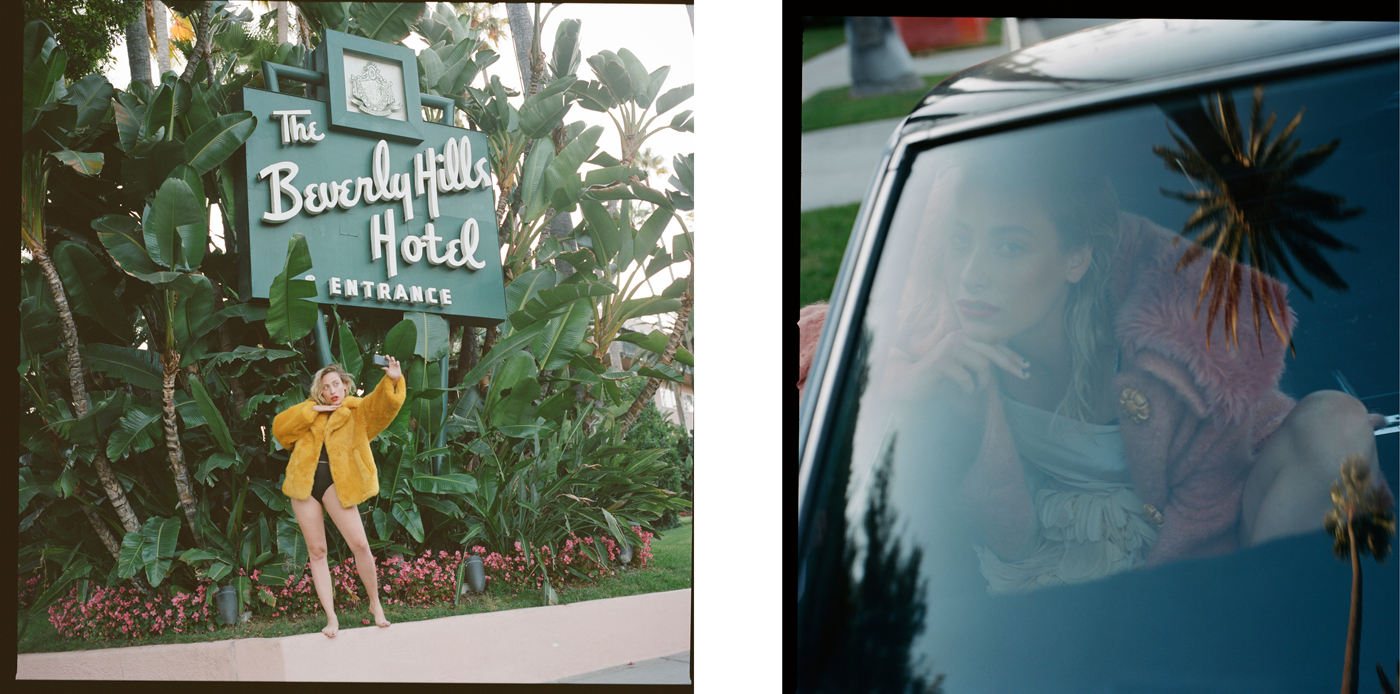
Music was always a part of Urbani’s life, and growing up in Connecticut, she was introduced to Eighties pop by her mom—“her daily exercise would be ripping it up to Janet Jackson in our living room”—and Motown and Smokey Robinson by her dad. Despite this, Urbani felt shy in committing herself to music. Growing up home-schooled, she had always been encouraged to self-educate, but the feeling that she still had a lot to learn meant she felt intimidated, she says. “All my friends around me were really talented, and it made me really shy, knowing how much I cared about it.”
It wasn’t till after she quit college, broke up with her boyfriend of the time, moved to Berlin for six months, and then returned to the US that she finally dedicated herself to music. Landing in Bushwick circa 2010, she founded Friends, a band variously described as “indie pop” or “dance punk,” but which Urbani herself classifies as “exploration pop,” thanks to the band’s constant genre experimentation. They played their first show in the mud in her backyard in Bushwick. A year later, they were selling out shows in London and were nominated for the BBC’s Sound of 2012 poll, but by 2013 the band had broken up. “It was like being in a marriage with five people,” she recalls.
Though Urbani relishes the opportunity to work independently—she laughingly describes Policies of Power as “really overindulgent and overprocessed”—she still prefers to have someone to bounce ideas off. For this EP, she collaborated with Sam Mehran, formerly of British dance punk band Test Icicles. A longtime friend, she explains, “he was ambitious and talented and available enough. It just felt organic. We ended up spending a lot of time together last year in his basement.
“Sam has this insane musical mastery and excellence, like he can play everything incredibly well, but also he has this deep rooted underground taste in music, and at the same time can appreciate a hook from NSYNC,” she laughs.
Indeed, through the five tracks on Policies of Power, one can see the rich influences that both Urbani and Mehran have cultivated. Musically, Urbani wasn’t afraid to reference everything from punk to prog rock and dance hall—nor was she shy about evolving them. “Hints & Implications” started off as an ode to new age synth, she says—“I was kind of interested in how close I could get to it without ripping it off,” yet the final track reveals a touch of post punk and stronger guitars than one would expect of the genre. In the end, she says, it was a “rejection of what it was originally meant to be.” “U Know I Know” was written on her iPad, “but I accidentally made this little dance hall beat and I was like, ‘Woah, what is that?’ and I just let it develop from there.” The track reminds her of one of her favorite songs, UB40’s “I Can’t Help Falling in Love with You.” “There’s something equally smooth and explosive about it,” she says.
The entire EP is deceivingly enjoyable; it’s easy to get lost in the beat without realizing what the lyrics are about. Using pop’s favorite subject, love, as a lens, Urbani sings about relationships, but also about gaslighting, political accountability, and karma. When Urbani was a teenager, a friend she was in love with died of a heroin overdose. Singing about this on “Time Time Time,” her favorite track, the lyrics look at the idea of relationships and “how they can continue to exist after someone has left the earth. It’s about trying to dismantle the idea of linear type being the only type of experiential existence,” she says. Urbani is fascinated enough by this idea that she has a tattoo of a wormhole on her body.
Even when writing songs, Urbani prefers to defy expectation. “U Know I Know” was written on a plane, while “1 2 3 4” was written on her laptop keyboard while riding the Metro-North from Connecticut to New York—the original demo features the conductor’s voice (“I love being alone in public and making something at the same time.”). With this menagerie of influences going into each story, it’s no wonder that even Urbani’s songs defy classification. Once, as a joke, she suggested that her genre was “some combo of the words pop, prog, and frog, whether it’s frog prog pop or frog pop prog or something.”
“I said ‘prog’ as in progressive, because sometimes it’s overly smart music, but then there’s something amphibian and outerspace-y about it, but then it’s also very pop.” Or, she says, if that’s too much for people to take in, it could also be defined as “psycho schizo power pop.” But it’s still very listenable, she adds.
Policies of Power is out now.
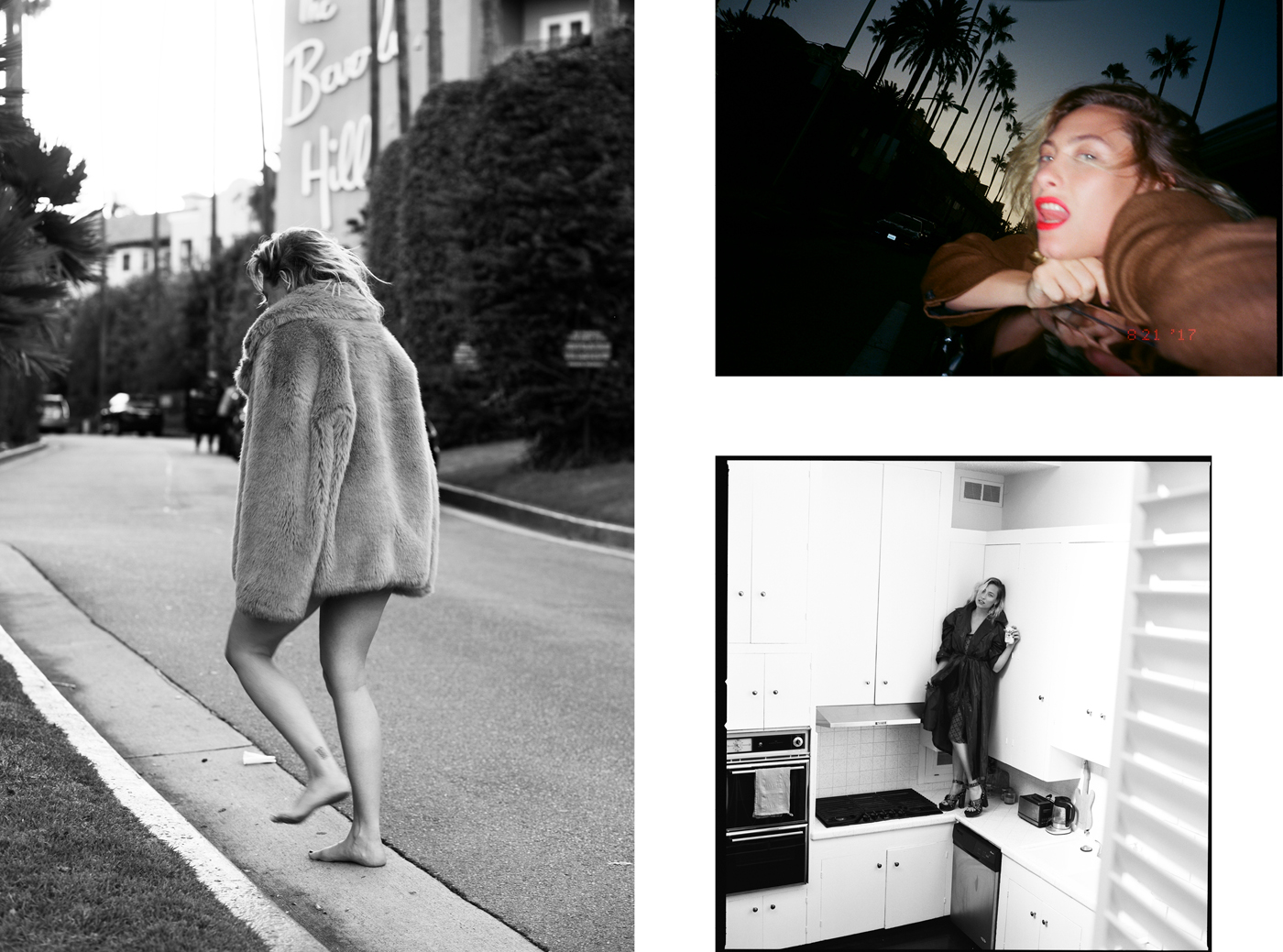
- By
- Annette Lin
- Photography by
- Max Papendieck
Styling by Sean Knight. Hair by Whitney Schield at Atelier Management. Makeup by Homa Safar using NARS Cosmetics. Photographer’s assistants: Colin Smith and Grant Mellon. Production by Paul Preiss and Mark Hobson at Preiss Creative.
